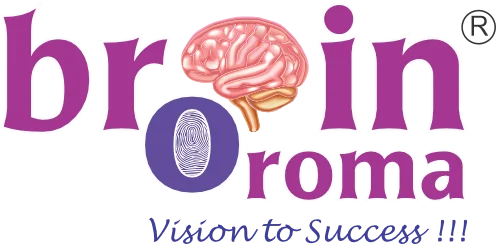In today’s fast-paced world, it’s easy to feel overwhelmed, stressed, or disconnected. The pressure to keep up with work, relationships, and personal expectations can often lead to neglecting our emotional and mental well-being. But how do you recognize when it’s time to seek help?
Asking for help is not a sign of weakness; it’s an act of self-care. Recognizing the signs that you need professional support is an essential step toward healing and improving your overall quality of life. Here are a few signs to look for when determining if it’s time to seek help:
1. Persistent Feelings of Sadness or Hopelessness
One of the most common indicators that you might need help is a lingering sense of sadness or hopelessness. If you find yourself feeling down for an extended period, or if you struggle to see the positive aspects of your life, it could be a sign that you need professional support. These feelings may be linked to depression, and it’s crucial to address them before they take a deeper toll on your mental health.
2. Overwhelming Stress and Anxiety
If you often feel anxious, nervous, or overwhelmed by situations that you would typically handle with ease, it could indicate that you’re experiencing chronic stress or anxiety. Stress that interferes with daily activities, work, or relationships is a clear signal that it’s time to seek help. Therapy or counseling can help you learn effective coping strategies to manage stress and regain control over your life.
3. Changes in Sleep and Appetite
Significant changes in your sleep patterns or appetite can be signs that something is off. Whether you’re sleeping too much or struggling to get enough rest, poor sleep can exacerbate mental health issues. Similarly, a change in appetite—whether eating too much or too little—can be linked to emotional struggles. If these changes persist for weeks, it’s essential to recognize that they may be signs of something deeper, such as depression or anxiety.
4. Difficulty Maintaining Relationships
Healthy relationships require communication, trust, and emotional regulation. If you notice that you’re struggling to maintain meaningful relationships with family, friends, or coworkers, it could indicate emotional distress. Constantly feeling irritable, disconnected, or withdrawn can affect the way you interact with others. Therapy can help you address the root causes of these issues and teach you how to communicate effectively and manage your emotions.
5. Loss of Interest in Activities You Once Enjoyed
When you lose interest in activities, hobbies, or social interactions that once brought you joy, it may be a sign that your mental health is in decline. This is particularly concerning if you feel disconnected or detached from the things you once found fulfilling. Therapy or counseling can help you rediscover a sense of purpose and pleasure in life.
6. Feeling Isolated or Alone
Even though we live in a highly connected world, many people still experience feelings of isolation and loneliness. If you find yourself withdrawing from social events or feeling like you’re disconnected from others, it’s time to reassess your emotional health. Feeling alone, even in the presence of others, can lead to depression or anxiety. Reaching out for help can help you reconnect with others and heal from emotional wounds.
7. Physical Symptoms Without Clear Cause
Sometimes emotional distress manifests physically. You might experience headaches, stomach problems, or unexplained body aches. These physical symptoms may indicate that your body is reacting to mental strain. If you’re experiencing frequent physical discomfort without a clear medical cause, it could be a sign that your mental health needs attention.
8. Negative Self-Talk and Low Self-Esteem
Constantly putting yourself down, feeling unworthy, or experiencing extreme self-criticism are indicators of low self-esteem and poor mental health. If you find yourself stuck in negative thought patterns, it can be helpful to seek professional support to break free from this cycle. Therapy can help you develop a more balanced and positive outlook on yourself.
9. Substance Abuse or Self-Medicating
Using alcohol, drugs, or other substances to cope with emotions, stress, or pain is a serious red flag. While it might seem like a temporary escape, substance abuse can worsen mental health issues over time. If you or someone you know is struggling with substance abuse as a coping mechanism, it’s crucial to seek professional help immediately.
10. Thoughts of Self-Harm or Suicide
If you ever experience thoughts of harming yourself or ending your life, it is critical that you seek help immediately. These thoughts are a severe indication that you need immediate support. Talking to a therapist, counselor, or helpline can be the first step toward getting the help you need. You are never alone, and there is always support available to you.
Conclusion
Recognizing the signs that you need help is the first step toward better mental health. It’s important to understand that seeking help is a proactive and brave decision that can lead to long-term benefits. Whether you’re dealing with anxiety, depression, relationship issues, or stress, there are resources and professionals available to guide you toward healing. Remember, you don’t have to face these challenges alone. Prioritize your mental health and take the step to reach out for help today.
At Brainoroma, we specialize in helping individuals understand and manage their mental and emotional health. If you or someone you know is struggling, don’t hesitate to reach out. Together, we can work toward a happier, healthier life.
Call to Action: If you’re ready to take the first step toward better mental health, contact Brainoroma today to learn more about our support services and how we can help you.

4606yd